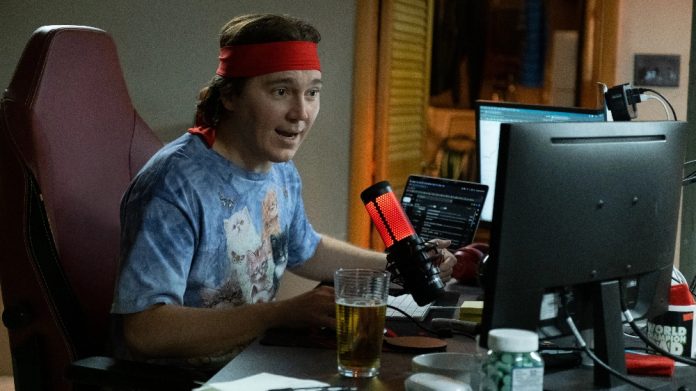Craig Gillespie may not be an actor, but he’s something of a chameleon himself.
16 years ago, Gillespie walked away from his feature debut, the Billy Bob Thornton “comedy” — a word I use loosely in this instance — Mr. Woodcock, due to creative differences with New Line following its initial test screenings. The film was heavily rewritten and reshot, and director David Dobkin replaced him on the project.
That was in 2007, and though such an inauspicious debut might bode poorly for the average director’s career, Gillespie didn’t sweat the setback too much, as less than one month later, his “real” directorial debut, Lars and the Real Girl, premiered in theaters to critical acclaim. The Oscar-nominated dramedy starred Ryan Gosling as a sweet but socially awkward young man who develops a romantic relationship with an anatomically correct doll named Bianca.
That film led to movies as different as the Fright Night remake starring the late, great Anton Yelchin, and a pair of Disney movies — the sports drama Million Dollar Arm starring Jon Hamm, and the action-thriller The Finest Hours, about a thrilling Coast Guard rescue. Gillespie would return to Disney five years later for Cruella, the studio’s live-action riff on the 101 Dalmatians villain starring Emma Stone. In between, he directed I, Tonya, the incredible Tonya Harding biopic starring Margot Robbie as the infamous figure skater. That’s as varied a filmography as any over the past decade-plus.
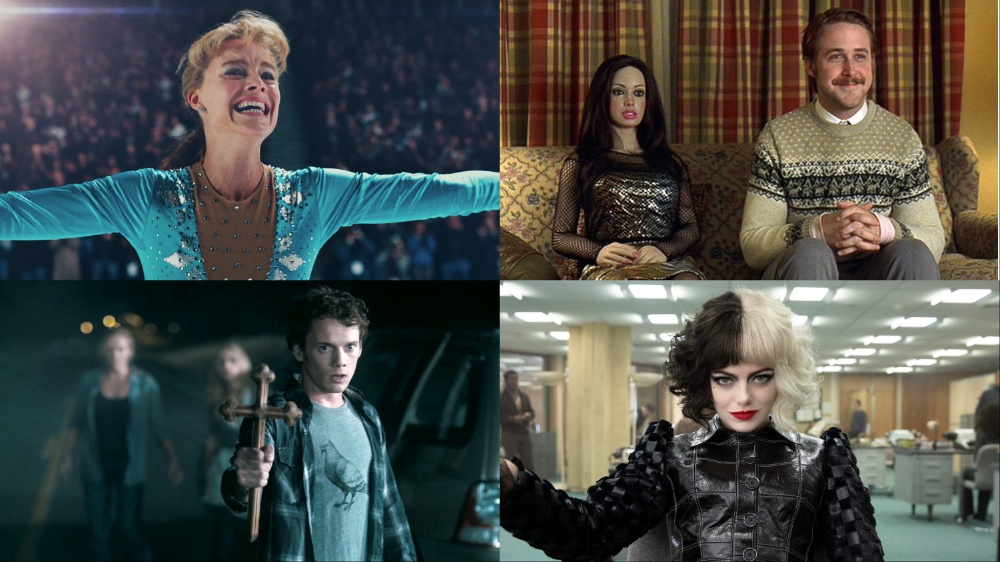
The Australian filmmaker returns to theaters this week with Dumb Money, a dramatization of the GameStop saga, to which Gillespie had a personal connection — his son was an amateur investor, and riding the stock “to the moon.”
Gillespie assembled a star-studded cast for his film, which is led by Paul Dano as Keith Gill, who is likely better known as Roaring Kitty, the YouTube vlogger who sparked a financial revolution with the help of countless Reddit users who stayed committed to the cause. Could David slay Goliath despite playing an ostensibly rigged game?
Working from a script by Lauren Schuker Blum and Rebecca Angelo, Gillespie ratches up the tension over the course of 104 very economical minutes. Some of the billionaires depicted in the film have threatened to sue Sony, but that studio is used to dealing with heat, from The Social Network to Zero Dark Thirty to The Interview, so the director isn’t too concerned.
Above the Line recently spoke with Gillespie, who was doing press for Dumb Money at the Toronto International Film Festival in lieu of his cast being on strike. He revealed the Paul Dano movie that made him think of the actor for the role of Kitty, the challenge of making a movie exciting when so many characters are sitting around staring at screens, and why he thinks his I, Tonya star Paul Walter Hauser would be perfect in a Quentin Tarantino movie… if a certain rumor proves accurate.
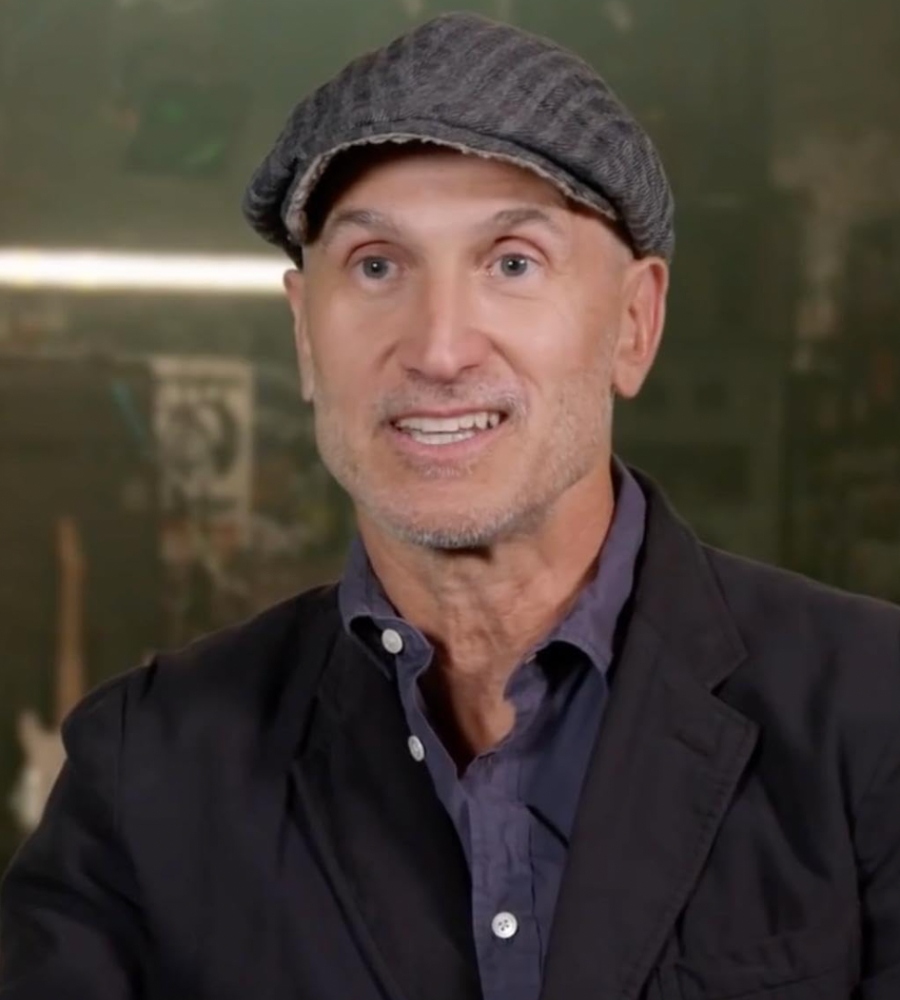
Above the Line: What was it about the GameStop saga, and about Lauren and Rebecca’s script, that made you want to be a part of the project?
Craig Gillespie: I was actually aware of this before Rebecca and Lauren’s script. I saw it in real-time as it was happening because it was during COVID, and my son — I have two sons — and one of them was living with us — he was 24 at the time — and he was all over /WallStreetBets [on Reddit]. So he was constantly coming in and being like, ‘Hey, Elon Musk just tweeted “GameStonk,” people are going nuts. Mark Cuban just tweeted.’ And it was this slow burn [over] a couple of weeks, and then it got so intense, and he had options in that final night where it went to $400 that day.
The intensity and the stress levels — checking the phone every 3-4 minutes, when to sell, when to get out, what to do, checking pre-markets, [and] after-markets until three in the morning — it was such an intensely focused moment. Then he got out, did really well with it, and Robin Hood shut down the option to buy the next day, and the frustration and the outrage that was sort of unleashed online, and just seeing it all happen in real-time and just being a part of that story…
I happened to be working with Rebecca and Lauren on a different project a couple of months later, and we were talking about it a lot. We were doing this other movie, and then suddenly this movie imploded and fell apart, and Rebecca and Lauren sent the script over, and I read it immediately. They did such a beautiful job with it, such a dance between all of these characters, taking a complex situation and distilling it down to, like, the human level of what was happening, and just capturing, literally, what I had witnessed first-hand, but they caught it on the page. So I could take all of that energy and all of that emotion that I saw first-hand, and inject it into their script. That was the long answer. Sorry, Jeff.
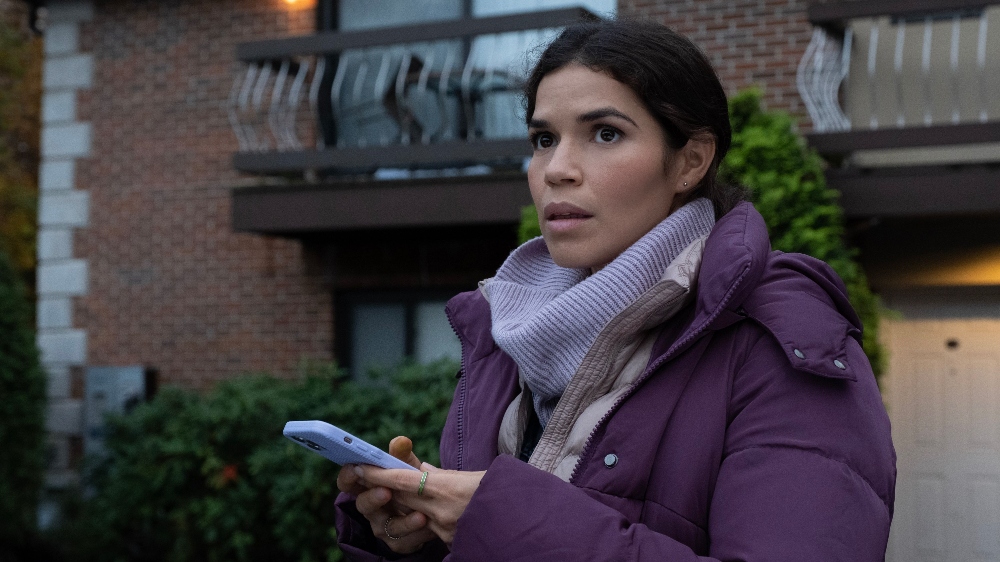
ATL: So your family had a personal connection to this story, but did you ever put any of your own funds into GameStop?
Gillespie: Many [laughs]. It was interesting, first, because it was happening so quickly in real-time, the congressional hearing wasn’t in the script. And that was the first thing. Like, we’d just gone through that by the time I came onboard, and I was like, ‘We have to have this in the film.’ I mean, it’s such a natural conclusion to the frustration and the outrage and this feeling of the system being rigged against you. It was a culmination of all those story events coming together, so they had to sort of rewrite the script to that end. It had a very long trickle-down effect of, “Where does he get subpoenaed in the film? Where are these touchstones along the way?”
On a very [basic] level, my experience with my son as he was going through it, it was the college girls, Myha’la [Herrold] and Talia [Ryder]. He had a similar trajectory to them — getting out just in time, getting back in after the crash for the next rally of it, so that intensity and the stress levels and the stakes that are involved, I got to inject that, particularly into their performances.
ATL: Can you talk about your approach to depicting the wealth gap between the haves and the have-nots from a visual perspective in this movie?
Gillespie: I worked with the same cinematographer, Nicolas Karakatsanis, who I did I, Tonya and Cruella with. And very, very quickly, we knew we were going to make, visually, a different kind of movie than those films. The camera moves a lot in those movies, [and] everybody’s very sedentary in this. Everybody’s sitting at a monitor or looking at a phone. There’s a lot of characters.
But the thing I really wanted to capture was just the pressure of it all. And doing that [means] a lot of coverage and a lot of lock-offs and a lot of cameras and a lot of fingers and knees jiggling, and detail shots to build that pressure. Plus, the incredible score that we got from Will Bates — I think this was the first feature film that he did. So just everything working toward that pressure cooker and that intensity.
And then on top of that, we have these memes, and this real footage of news anchors and talk show hosts that remind you of the enormity and the scale of the dialogue that’s happening with everyone [who’s] involved in this. So we had an embarrassment of riches there, but it was like, “How much of it do we use and where do we use it? When is it necessary?” But it kept giving us context for the scale of this.
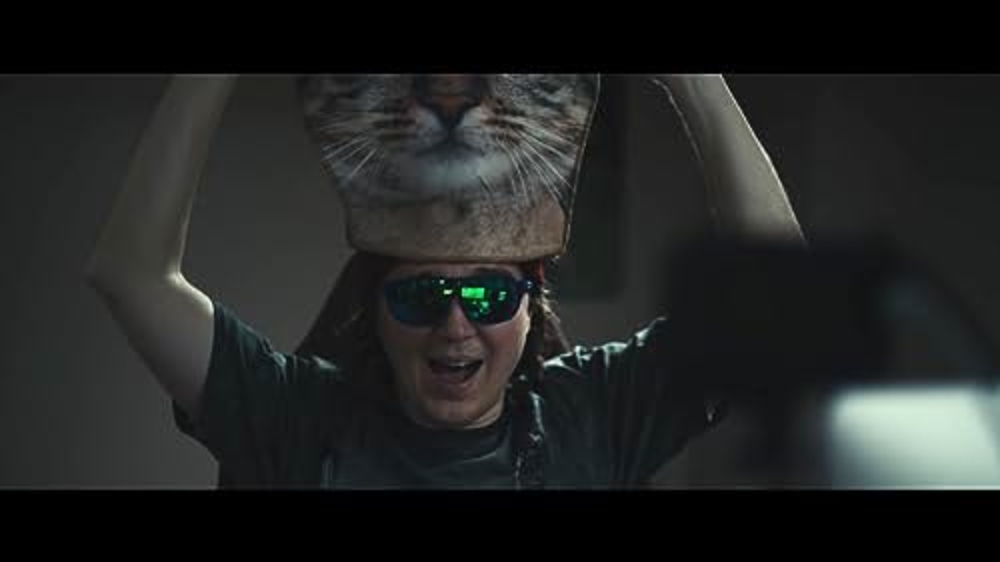
ATL: What qualities did Paul Dano exhibit that made you feel he was the right guy to play Roaring Kitty?
Gillespie: I’ve loved Paul’s work for as long as I can remember. He started out in the theater on Broadway when he was a kid. He’s got such an amazing, diverse range of work. Literally, when I was talking to him, he had The Batman and The Fabelmans coming out — a loving father and a very disturbed villain in the same [year]. His range is insane.
Surprisingly, what I was drawn to was Swiss Army Man and the exuberance that he has in that, and the joy and the naivete. These were [qualities] that I felt I could see in the videos that Keith Gill would post, and that sort of wonder and excitement was what I was hoping to capture, and [Paul] was amazing with it.
ATL: Speaking of range, your own career has spanned a wide range of genres. I feel like it’s very difficult to pin you down as a filmmaker. So what would you say is the hallmark of a Craig Gillespie movie?
Gillespie: Well, I’ve come to realize, I guess, [that] it always seems to be about an outsider — somebody who’s marginalized or an underdog. That definitely seems to be a theme that I relate to. The other hallmark though, which I try to always have, is that I love this dance of tone between comedy and drama. Whether it’s Cruella or whether it’s I, Tonya, it’s like, they all do the dance. And to me, it’s a zone that I find really interesting and [one] that’s more reflective of true life. We don’t live in genres.
It’s like, when you’re in these intense situations in life with family or friends, humor is a large part of that, whether it’s used to deflect, encourage, bond, or whether it’s your armor, but humor is very much a part of our fabric, and so, to be able to do that dance, I think it connects the audience in a more strong way to what’s going on. They understand the characters and the dynamics better. It’s a real tool that I love to use, even in the most intense situations.
ATL: I have to ask, any comment regarding the threatening legal letters that Ken Griffin has reportedly sent to Sony objecting to his depiction [by Nick Offerman] in the film, and has anybody else raised objections?
Gillespie: That’s… obviously, he can raise objections, but we tried to tell the truth and be as accurate as possible. You can’t hide behind “the truth.”
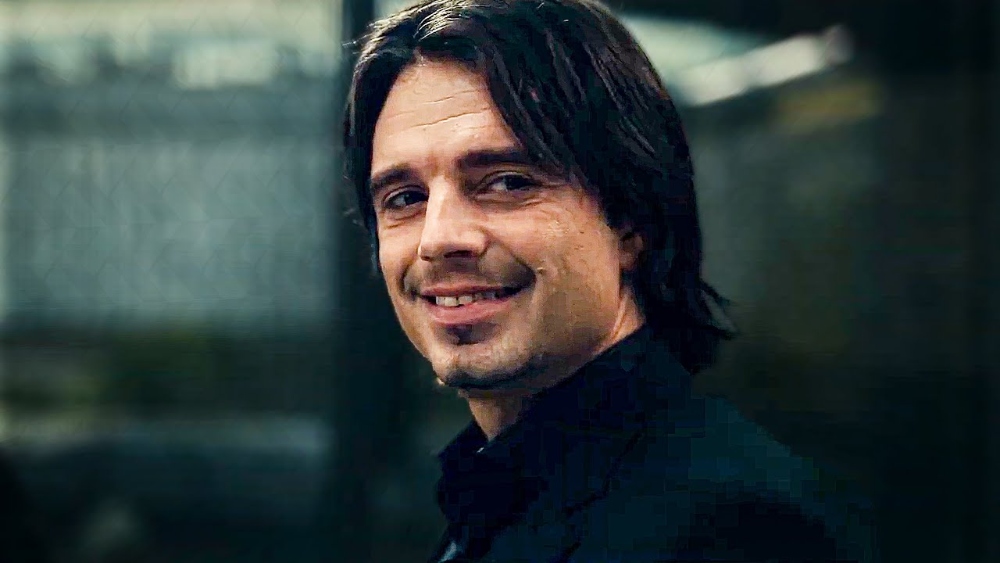
ATL: I’ve loved your TV work, from Pam & Tommy to Physical and Mike, where I loved B.J. Minor’s performance in particular. So is it important to you to be able to go back and forth between mediums, and do you have your eye on your next TV project?
Gillespie: I actually have several projects, and I actually have a television production company now, so we’ve got several things we’re developing. Unsurprisingly, several of them are real-life stories, but some are not. We’re hoping all the elements come together, but you’ve gotta get a script that’s really working, and the tone that I’m hoping to capture, but also the right actors for those things. There’s definitely stuff that we’re leaning into but it’s too early to be saying much, and obviously, everything’s complicated right now with the strike, so it’s sort of hard to say where anything’s going to land.
ATL: Do you have a favorite performance within the Dumb Money ensemble that you’d like to single out for a little extra love?
Gillespie: My favorite was anytime we had Pete [Davidson] and Paul in a scene together because [of] the difference in the way that they approach the material. [The two play brothers who couldn’t be more different.] Paul is classically trained and very methodical, very much about the text, and Pete is very intuitive and goes with his gut. So, a lot of the time, Pete was improvising, and I wasn’t quite sure how that dynamic would work together, but I was very excited about it and excited to see what happens when the two of them are fighting in the backseat of a car or arguing around the dinner table. It was electric, I just loved it — every time I could get them together.
ATL: Last question: In I, Tonya, you introduced us to a young actor whom not many people had ever heard of before — Paul Walter Hauser. The rumor is that he may be playing the lead in Quentin Tarantino’s 10th and final film, The Movie Critic. So, my question to you is, can you see Paul as the lead in a Tarantino film, and does he have what it takes to play a movie critic?
Gillespie: I couldn’t be more excited to see him in a Tarantino film. I think Paul is so unbelievably talented. I’ve had the pleasure to work with him a couple of times now, and his instincts and the empathy that he can have — [which] is so understated and subtle and draws you in, and still manages to entertain you at the same time — is astounding. He’s got so much heart and so much range, so I can’t wait to see that film.
Dumb Money is now playing in select theaters courtesy of Sony Pictures, and the film will expand into more theaters over the next two weeks.


